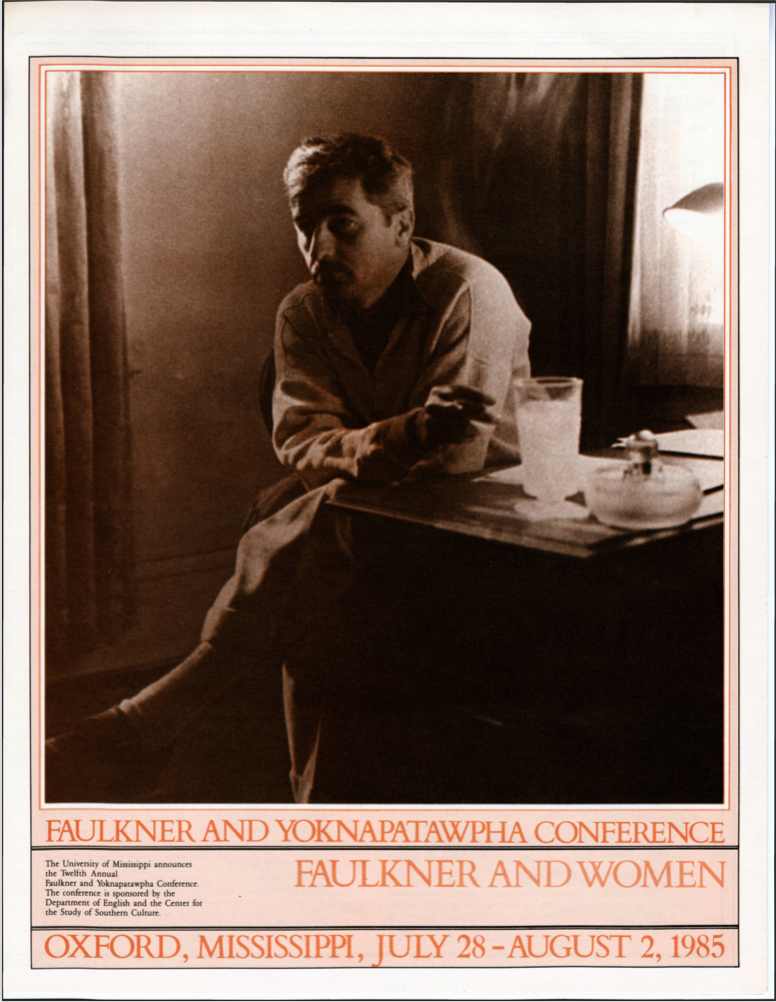
Meditations on the Other: Faulkner's Rendering of Women
Location
Ole Miss Union Ballroom
Start Date
31-7-1985 9:00 AM
Description
“I think women are marvelous, they're wonderful, and I know very little about them,” Faulkner is reported to have said at the University of Virginia. Beginning with the conviction that no male writer could ever say this about men I take Faulkner at his word and explore what is “marvelous” in his narrative deployment of women. Drawing on four novels, this essay examines some of the ways in which Faulkner's narrative treats his women differently from his men: how the women appear, through their “wonderful" strangeness, as other.
Faulkner's women tend to be less verbal than his women, and when they are verbal―as Mrs. Compson and Rosa Coldfield are―no one pays much attention to them. They speak at rather than with their interlocutors; they are not granted the dialectic give-and-take of shared assumptions and a common vocabulary that characterize the discourse of Faulkner's men. To be “marvelous” means to be unlike others to be deprived of a community of like-minded peers with common projects and a common language for pursuing those projects.
The women often appear in the fiction as the intense projection of male brooding. How they move and speak, what kind of past can be attributed to them, in what company they find themselves: the disposition of each of these issues is shaped by the male lenses through which, recurrently, we have access to the women. Implicit within the hal1ucinatory stance of Quentin toward "sister"—isolated, all-important, scandalously implicated in his own psychic life yet unknowable, other—we may find the latent model for Faulkner's narrative stance toward his "marvelous" women characters.
Relational Format
Conference Proceeding
Recommended Citation
Weinstein, Philip M., "Meditations on the Other: Faulkner's Rendering of Women" (1985). Faulkner and Yoknapatawpha Conference. 15.
https://egrove.olemiss.edu/fy/1985/schedule/15
Meditations on the Other: Faulkner's Rendering of Women
Ole Miss Union Ballroom
“I think women are marvelous, they're wonderful, and I know very little about them,” Faulkner is reported to have said at the University of Virginia. Beginning with the conviction that no male writer could ever say this about men I take Faulkner at his word and explore what is “marvelous” in his narrative deployment of women. Drawing on four novels, this essay examines some of the ways in which Faulkner's narrative treats his women differently from his men: how the women appear, through their “wonderful" strangeness, as other.
Faulkner's women tend to be less verbal than his women, and when they are verbal―as Mrs. Compson and Rosa Coldfield are―no one pays much attention to them. They speak at rather than with their interlocutors; they are not granted the dialectic give-and-take of shared assumptions and a common vocabulary that characterize the discourse of Faulkner's men. To be “marvelous” means to be unlike others to be deprived of a community of like-minded peers with common projects and a common language for pursuing those projects.
The women often appear in the fiction as the intense projection of male brooding. How they move and speak, what kind of past can be attributed to them, in what company they find themselves: the disposition of each of these issues is shaped by the male lenses through which, recurrently, we have access to the women. Implicit within the hal1ucinatory stance of Quentin toward "sister"—isolated, all-important, scandalously implicated in his own psychic life yet unknowable, other—we may find the latent model for Faulkner's narrative stance toward his "marvelous" women characters.

